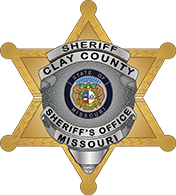The School Resource Deputy (SRD) Unit began in the North Kansas City School District in 1998 at Maple Park Middle School. Since then, the SRD Unit has expanded to 16 Clay County Deputies and two Municipal (North Kansas City and Gladstone Police Department) Officers. The Unit serves more than 24,000 students and staff, and the program places emphasis on developing positive and favorable community and student relationships.
The SRD Unit provides coverage for the North Kansas City School District from kindergarten through 12th grade. There are two SRDs assigned to each of the four high schools daily, and one for each middle school. In 2021, the unit expanded by four into the elementary schools. With the additional elementary school deputies – coupled with having full-time coverage at all the middle and high schools – we are increasing our scope of intervention, prevention, and education by working closely with staff, school administrators, and community resource specialists.
Developed by the National Association of School Resource Officers, The SRDs follow the SRO Triad model. The Triad centers around three roles for School Resource Officers: Educator, Counselor/Problem Solver, and Law Enforcement. The Triad model focuses on teaching students about safety through class presentations, problem solving through mentoring and counseling, and law enforcement. All SRDs attend a one-week SRO school presented by the Missouri Sheriff’s Association. The also receive Crisis Intervention Team (CIT) training, and Youth CIT Training. Our SRDs have a wide variety of experiences, training, and knowledge they bring to each school. As law enforcement officers, they complete yearly training related to interpersonal perspectives, racial profiling, implicit bias and de-escalation. This makes them great partners with the students, staff and families.
A core principle of community policing and the SRO Triad Model is to build relationships that center on trust and confidence so everyone works diligently to problem solve. Carefully selected and specifically trained SRDs can mitigate consequences that other officers or deputies might not. Couple this with additional training, providing their services in the homes of students to offer encouragement to utilize community resources, and serving as a positive adult figure to help students stay on course, and the program begins matching the progressive course taken to assist the school district’s students and families.
The SRD Unit also provides positive programs within the schools and community. The Junior Police Academy is a one-week program in the summer that provides a different look at law enforcement for the participants and a better understanding of all that goes into being a sheriff’s deputy or police officer.
The Unit also has a Law Enforcement Career Path program at the high schools that offers hands-on law enforcement classroom training and guest speakers from every aspect of law enforcement, including CSI, criminal psychology, road patrol, K9, and jail/prison occupations. This allows high school students who are interested in a career in law enforcement to gain a broader view of different fields.

